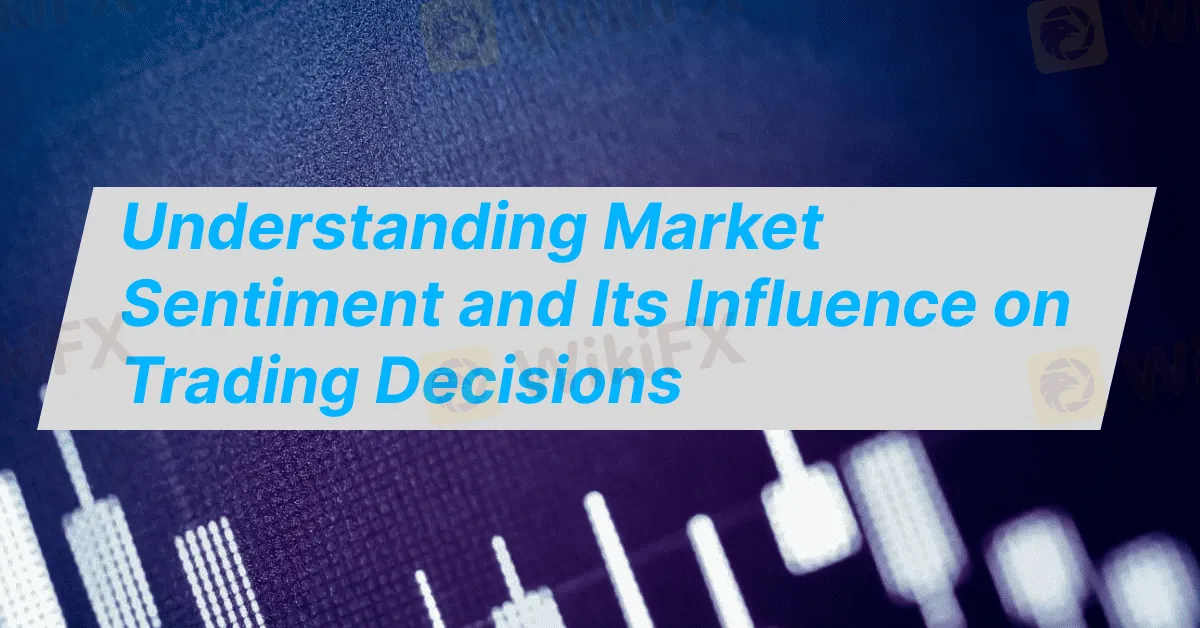简体中文
繁體中文
English
Pусский
日本語
ภาษาไทย
Tiếng Việt
Bahasa Indonesia
Español
हिन्दी
Filippiiniläinen
Français
Deutsch
Português
Türkçe
한국어
العربية
Understanding Market Sentiment and Its Influence on Trading Decisions
Abstract:market sentiment plays a pivotal role in influencing price movements and trader behavior. Understanding market sentiment can provide valuable insights that help traders make informed decisions. This article delves into what market sentiment is, how it is measured, and its impact on trading strategies.

market sentiment plays a pivotal role in influencing price movements and trader behavior. Understanding market sentiment can provide valuable insights that help traders make informed decisions. This article delves into what market sentiment is, how it is measured, and its impact on trading strategies.
What is Market Sentiment?
Market sentiment refers to the overall attitude of traders and investors towards a particular currency or the forex market as a whole. It encompasses emotions, biases, and psychological factors that drive market movements. Positive sentiment can lead to bullish trends, while negative sentiment can trigger bearish movements.
Factors Influencing Market Sentiment
Economic Indicators: Economic data releases, such as GDP growth, employment figures, and inflation rates, significantly affect market sentiment. Positive data often boosts confidence, while negative reports can lead to pessimism.
Geopolitical Events: Political instability, elections, and international relations can sway market sentiment. Traders closely monitor news events to gauge potential impacts on currency values.
Market News and Analysis: Analyst forecasts, market commentaries, and financial news can shape traders' perceptions and lead to collective market movements.
Technical Analysis: Patterns and indicators derived from price charts can influence traders' sentiment, creating self-fulfilling prophecies in price movements.
Measuring Market Sentiment
Sentiment Indicators: Various indicators help quantify market sentiment, including:
Commitment of Traders (COT) Report: This weekly report details positions held by different trader categories, helping assess market sentiment.
Market Sentiment Indexes: These indexes aggregate trader opinions, providing a snapshot of bullish or bearish sentiment.
Social Media and Online Forums: Analyzing discussions on platforms like Twitter, Reddit, or trading forums can offer insights into prevailing sentiment among retail traders.
Surveys: Surveys conducted by financial institutions can gauge investor sentiment, reflecting the market's mood.
Impact of Market Sentiment on Trading Decisions
Trend Identification: Traders can leverage market sentiment to identify potential trends. A strong bullish sentiment may indicate an upward price trend, prompting traders to buy. Conversely, widespread bearish sentiment could signal a downward trend, leading traders to sell.
Contrarian Strategies: Some traders adopt contrarian strategies, going against prevailing sentiment. When sentiment is excessively bullish or bearish, it may indicate a market reversal is imminent.
Risk Management: Understanding sentiment helps traders manage risk. If sentiment shifts dramatically, traders may adjust their positions to protect against sudden market movements.
Integrating Market Sentiment into Trading Strategies
Combine with Technical Analysis: Use sentiment analysis alongside technical indicators to enhance decision-making. For instance, if sentiment is bullish but technical indicators show overbought conditions, it may signal caution.
Stay Informed: Regularly monitor economic news, geopolitical developments, and sentiment reports to stay ahead of market shifts.
Emotional Discipline: Recognize the influence of emotions on trading decisions. Avoid impulsive trades driven by fear or greed by grounding your decisions in sentiment analysis.
Conclusion
Understanding market sentiment is crucial for successful forex trading. By gauging the collective mindset of traders, forex participants can make more informed decisions, identify potential trends, and manage risk effectively. Integrating sentiment analysis with technical and fundamental strategies can enhance trading performance and lead to more consistent results. As the forex market continues to evolve, staying attuned to market sentiment will remain a vital aspect of a trader's toolkit.

Disclaimer:
The views in this article only represent the author's personal views, and do not constitute investment advice on this platform. This platform does not guarantee the accuracy, completeness and timeliness of the information in the article, and will not be liable for any loss caused by the use of or reliance on the information in the article.
Read more

Many Social Media 'Investment Gurus' Are Scammers Preying on Malaysian Traders
Social media platforms have become breeding grounds for scammers posing as investment gurus, exploiting the growing interest in forex and cryptocurrency trading among Malaysians. Fraudulent "financial experts" often create the illusion of legitimacy by offering enticing stock analyses and promises of high returns.

IronFX Launches $500K Grand Trading Slam with Big Prizes
Join IronFX’s $500K Grand Trading Slam for a chance to win major cash prizes. Compete in trading challenges and rank up to the grand prize! Start trading today.

What Happens if A Broker Goes Bust?
For traders, understanding what happens when a broker collapses is crucial. It serves as a reminder that choosing the right broker involves more than just attractive spreads and swift execution; it’s about safeguarding funds in case things go wrong.

Trading is Not Gambling—Unless You Make It So
In the world of online trading, a common misconception persists: trading is often seen as no different from gambling. This belief is particularly prevalent among newcomers, who may view the financial markets as a fast-paced game where winning is just a matter of luck. But trading, when done correctly, is far from mere chance!
WikiFX Broker
Latest News
WikiEXPO Global Expert Interview: The Future of Financial Regulation and Compliance
DFSA Warns of Fake Loan Approval Scam Using Its Logo
Consob Sounds Alarm: WhatsApp & Telegram Users Vulnerable to Investment Scams
CySEC Revokes UFX Broker Licence as Reliantco Halts Global Operations
GCash, Government to Launch GBonds for Easy Investments
eToro Expands Nationwide Access with New York Launch
Webull Partners with Coinbase to Offer Crypto Futures
Why Is UK Inflation Rising Again Despite Recent Lows?
Interactive Brokers Launches Tax-Friendly PEA Accounts in France
Find Regulated Brokers from A to Z on WikiFX
Currency Calculator


